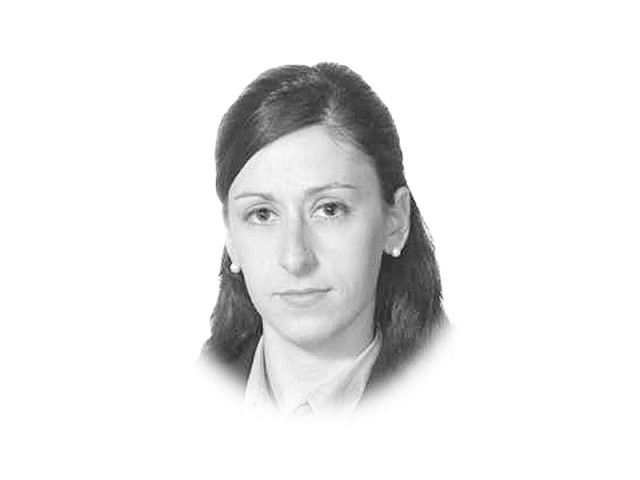Political crisis and the judiciary: What can the Supreme Court do?
It remains to be seen how situation will unfold, and what actions SC takes to contribute to the solution

Political crisis and the judiciary: What can the Supreme Court do?
The Supreme Court is no stranger to activism. Under former chief justice Iftikhar Chaudhry, the Supreme Court became embroiled with the executive, headed by General (retd) Pervez Musharraf, leading to the renowned sacking of Justice (retd) Chaudhry and the consequent lawyers’ movement for his restoration. Justice (retd) Chaudhry’s court heard issues covering environmental protection, sexual assault, abduction and others. Once he retired, in last December, the nation remained attentive to see how the Court under the new chief justice, Tassaduq Hussain Jillani, would look like. Justice (retd) Jillani fulfilled the expectations, as under his mandate, the apex Court issued few suo motu notices and refrained from hearing high profile cases. After another renewal of the top seat in the apex Court, Chief Justice Nasirul Mulk is now in the spotlight.
The apex Court is bound by the Constitution, and its actions, active or not from a political point of view, have to fall within its constitutional role. Articles 184 to 186 of the Constitution establish that the Supreme Court has got appellate, advisory and original jurisdiction. The Court may review judgments of lower courts, exercising its appellate jurisdiction, as long as the requirements for appeal established by law are met. Secondly, the Court may provide advice on certain matters if the president submits a request. Finally, the apex Court has original jurisdiction to decide over disputes between the federal and provincial governments, and to solve issues that affect fundamental rights. It is in the latter capacity that the Supreme Court has issued numerous suo motu notices over the last few years, without the need for interested parties to bring the case to the Court and follow the normal procedural requirements.
Despite the power of suo motu, it does not mean that the Supreme Court may take up any contentious matter in the public sphere and issue a judicial opinion. As per Article 184(3) of the Constitution, suo-motu actions can be taken when there is an alleged violation of constitutionally protected fundamental rights, and the case has “public importance”. Undoubtedly, the concept of “public importance” is a vague one, and it could be widely expanded by an active Supreme Court. Moreover, the scope of protection of fundamental rights can be enlarged as well. We have already seen the wide interpretation of the right to life starting with the case Shehla Zia v. Wapda, where the apex Court decided that the government could not build a grid station because of the potential danger to human health that such a station could cause.
Whether a wide or narrow understanding of the factors mentioned above is warranted is a separate question, but it is worth pointing out the vagueness of the said legal concepts in order to understand the room available for the Supreme Court to act.
Given that constitutional background, the question is, what can the Supreme Court actually do to contribute to the resolution of the ongoing political crisis? The Courts generally are already playing an important role in the protests. The Lahore High Court issued an order regarding the protests in the early stages of the crisis, stating that no protests could be held “in an unconstitutional way”. The Supreme Court has itself offered to mediate between the government and the demonstrators. As a general matter, however, the Supreme Court has been showing restraint. Several other actors are calling for the Supreme Court to provide justice, but how can the apex Court chip in while remaining within constitutional constraints? Since part of the discourse in this crisis is the need to uphold the Constitution, it would be clear that it is necessary for the Supreme Court, together with all other political actors, to stay within constitutional limits.
The options of invoking the Supreme Court’s original jurisdiction in the first scenario mentioned above seem out of the question as there is no clash between the federal government and a provincial one, or between two provincial governments. Rather, the actors embroiled in the crisis are the federal government and opposition parties. The second case in which original jurisdiction could be brought up, constitutionally, would necessitate the existence of a violation of fundamental rights and the element of public importance. The latter requirement could probably be easily argued for, as the ongoing political situation is deeply affecting the country. Regarding the human rights requisite, the Court would hypothetically have to observe some constitutional right violation that would allow it to wade into the controversy.
Finally, as per advisory jurisdiction, the Court could issue its advice on the matter, but it may only do so after a request put forward by the president.
The scenarios above seem to be the avenues open for a Supreme Court intervention, as per the competences constitutionally attributed to it. It remains to be seen how the situation will continue to unfold, and what actions the Supreme Court will take to contribute to the solution of the crisis, but it is important to keep in mind the constitutional framework in which the Court operates to assess, not only the political impact, but also the constitutionality of the Court’s actions.
Published in The Express Tribune, October 2nd, 2014.
Like Opinion & Editorial on Facebook, follow @ETOpEd on Twitter to receive all updates on all our daily pieces.















COMMENTS
Comments are moderated and generally will be posted if they are on-topic and not abusive.
For more information, please see our Comments FAQ